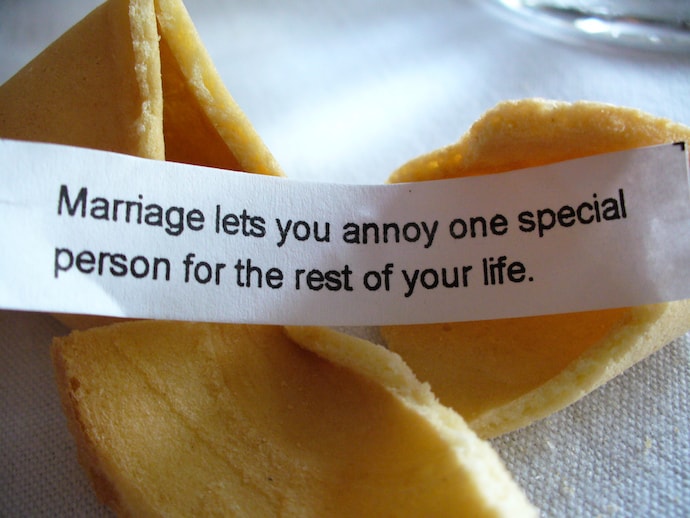A few months back, we were brainstorming ideas for our Lost in Translation event that was held two weeks ago. We thought about ordering fortune cookies as snacks – not exactly Japanese, but closely associated with Asian food and after all, who doesn’t like opening those tiny packages of wisdom? And that got me thinking: where do these nuggets of enlightenment come from? How do they seem to know the secret to your soul? Is there a wise man somewhere, churning out one-liners that disciples furiously scribble down and send to the fortune cookie factory?
A lucky gig
So I started doing a little research. It turns out, fortune writing is actually a job for aspiring writers and students looking to earn a bit of money on the side. The tradition goes way back to the early 20th century when fortune cookies dubiously (it may have originated from Japan, but we won’t get into that) became an integral part of Chinese restaurant culture in the USA. For decades now, fortune cookie companies have been hiring freelance writers to keep their messages fresh and relevant, amassing databases of tens of thousands of fortunes. Inspiration comes from every possible corner including films, books, hallmark cards and subway signs.
Write right now
But writing fortunes is not as easy as you might think. Take a Mills and Boon-like fortune such as, “You will meet a tall and handsome stranger.” Romantics may smile, cynics will smirk. But an innocent child might have nightmares at the prospect. The cheery line “Lighten up!” could offend those that are trying to lose a few pounds, and some simply go out of date, such as the 1940s fortune, “Find someone as gay as you are.” Then there are those Chinese proverbs that have been translated into gems such as “True gold fears no fire” that sound so promising, yet offer no insight into the future.
More than a little luck
So what makes a good fortune? The first rule is, the message has to be universal. The person opening the cookie might be young, old, male, female, rich, poor – you get the picture – and the fortune should appeal to as wide an audience as possible. Secondly, the fortune should be aspirational. No one wants to hear “You will lose sight of your dreams” regardless of how true this may be. Thirdly, they need to be fresh enough to make sure that people are met with a new fortune with each cookie – but not so progressive as to offend. And finally, the writer must be good with words: getting a philosophical message across in a few words is no mean feat. Tricky business, fortune telling. And it comes with great responsibility: many keep their fortunes in the hope that one day, they will come true. And if this report is to be believed, one particular fortune, printed hundreds of times, actually did bring great fortunes to those lucky enough to have followed it.
Do you have a favourite fortune that you’ve kept close all these years? Or would you like to have a go at writing a few? Should Supertext start a line of Swiss German fortune cookies? The answers to your questions will lead to great things.
Cover image via Flickr: Fortune Cookie – C.P.Storm (CC BY 2.0)
